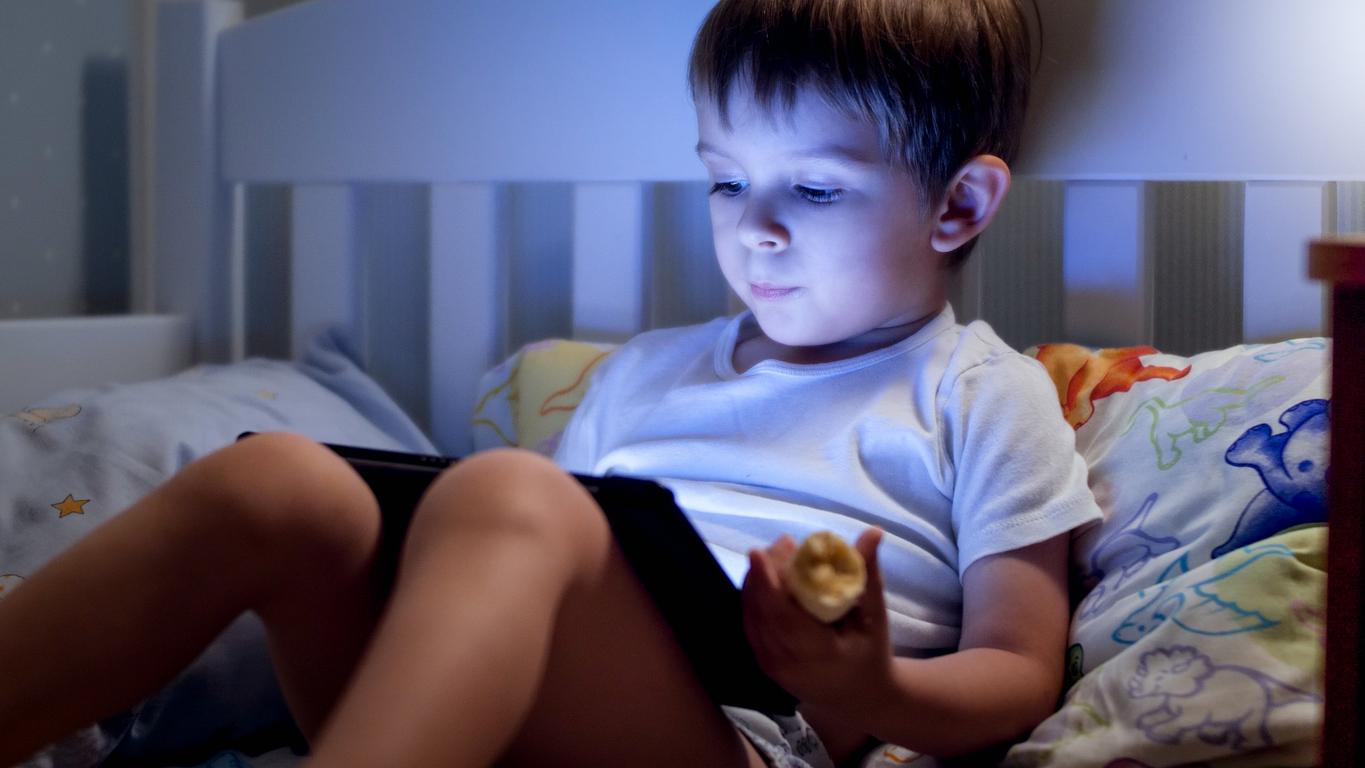Excessive use of screens harms children’s cognitive development, but the family context has an even greater impact.

- Time spent in front of screens is harmful to children’s cognitive development.
- But social factors matter just as much, like TV viewing times.
- For example, watching television during meals is associated with poorer language acquisition.
For several years, studies have highlighted the harmful consequences of overexposure of young people to smartphones, tablets or televisions. Recent research, carried out by French researchers from the Center for Research in Epidemiology and Statistics, demonstrates this once again, but it reveals that one factor is even more important: the family context. The results of this work are published in The Journal of Child Psychology and Psychiatry.
Screens and development: scientific studies difficult to carry out
Science has little perspective on screens, because their massive use is relatively recent, which makes obtaining data difficult. Existing studies are carried out using cohorts, groups of participants followed over the long term. This French research is based on the ELFE cohort: it used data from 14,000 children, collected from the age of 2 to 5 and a half years.
Cognitive development of children: how was this study carried out on children?
“Parents reported their child’s daily screen time at ages 2, 3.5, and 5.5 yearsspecify the authors in a communicated. They were also asked to report whether they turned on the television during family meals during the child’s 2nd year..” At the same time, the scientists questioned them about their lifestyle habits and their daily activities. “Finally, different cognitive domains were assessed: language development at 2 years, non-verbal reasoning at 3.5 years and overall cognitive development at 3.5 and 5.5 years.“, they emphasize.
Their results correspond to what science has been demonstrating for several years: at ages 3.5 and 5.5, time exposed to screens was associated with poorer overall cognitive development scores.particularly in the areas of fine motor skills, language and autonomy“, note the authors.
Screens: lifestyle has a greater impact on children’s cognitive development
But the continuation of their work showed the importance of other parameters on the development of children. “When lifestyle factors likely to influence cognitive development were taken into account in the statistical models, the negative relationship was reduced and became of low magnitude.“, warn the authors. For example, the timing of exposure appears to have a significant impact: having the television on during meals, regardless of duration, was associated with lower developmental scores regarding language. “This could be explained by the fact that television, by capturing the attention of family members, interferes with the quality and quantity of interactions between parents and child. However, this is crucial at this age for language acquisition., explains Shuai Yang, doctoral student and co-author of the study. (…) In addition, television adds background sound which, when superimposed on family discussions, will make it difficult for the child to decipher sounds and limit verbal understanding and expression.
However, the use of television during meals may be linked to social factors. “In advantaged social environments, screen time tends to be shorter on average and we also tend to have the television turned off during meals, develops Jonathan Bernard, lead author of the study, in an interview with France Culture. So this is why we must take social factors into account because these social factors influence both screen time or the fact that the television is on during the meal, but also on the cognitive development of children. children.” Whatever the moment, the French health authorities recommend avoiding exposing children under three to television.
















